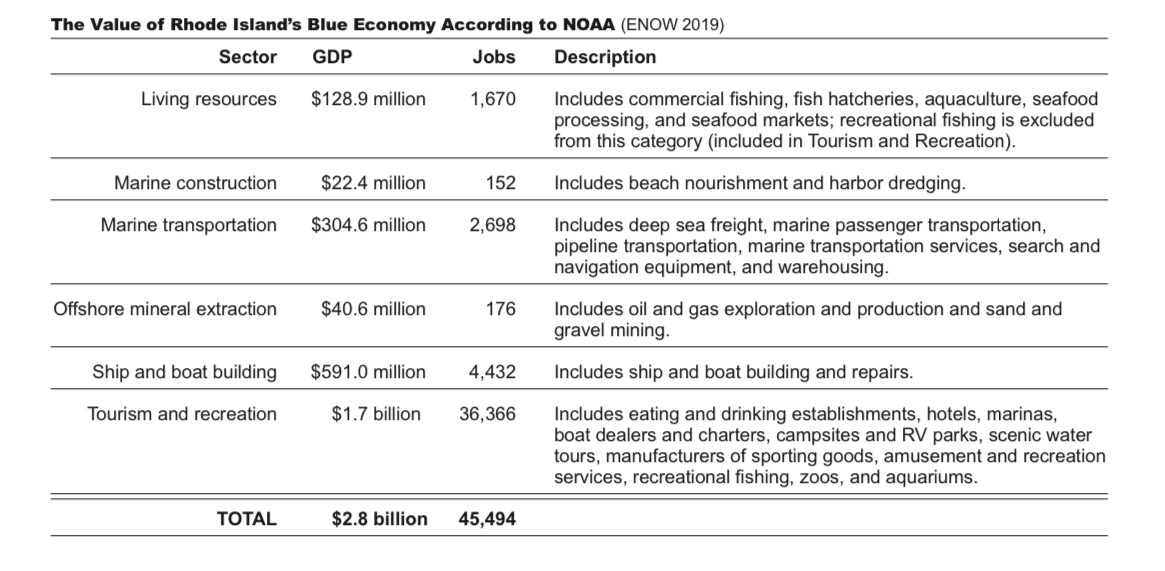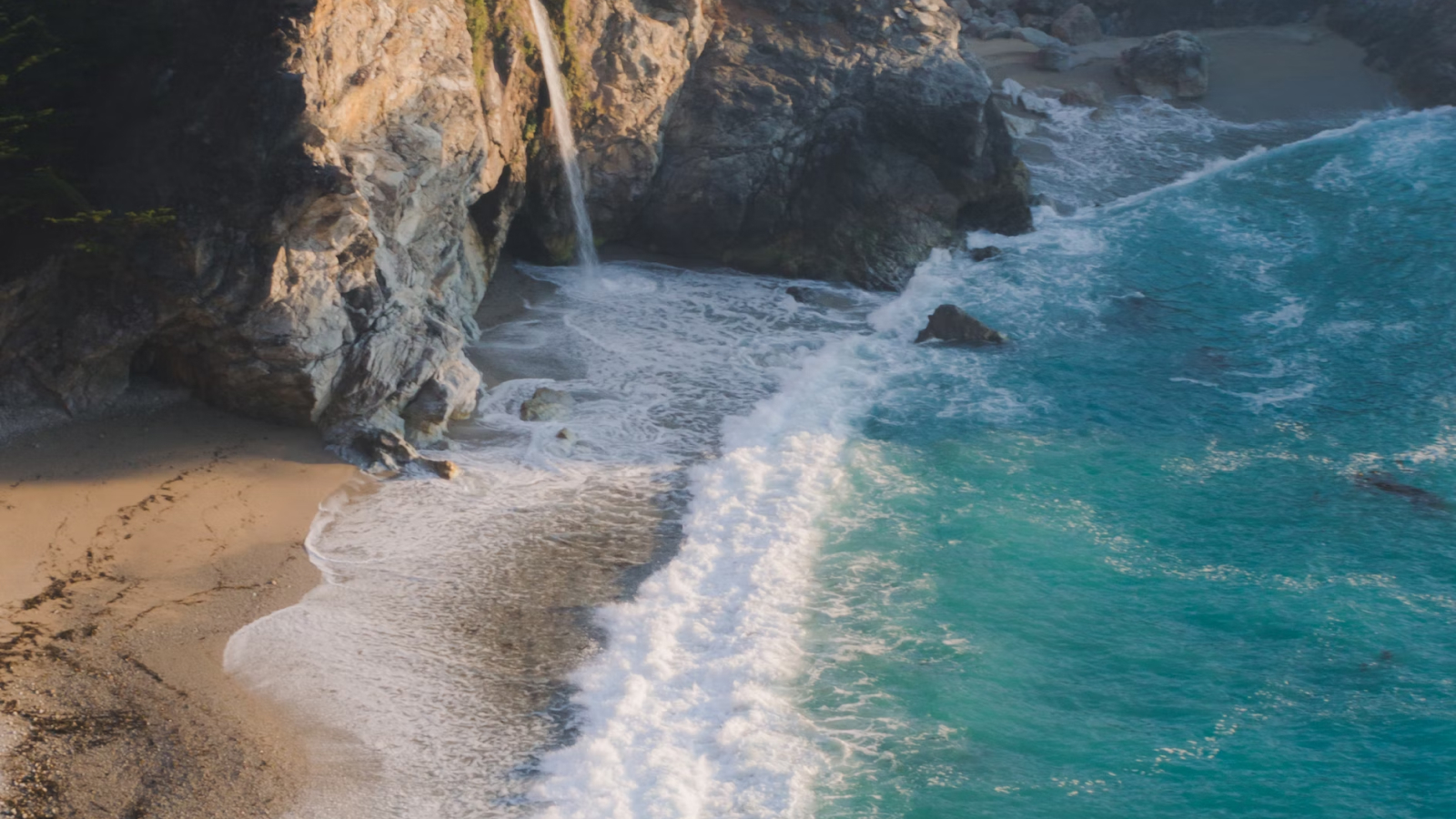Issue
Rhode Island’s coastal and ocean resources provide important contributions to the state’s economic well-being. From recreation to research and trade, Rhode Island’s blue economy is important not only locally, but also nationally and globally. Given the importance of this contribution, the Coastal Resources Center and Rhode Island Sea Grant at the University of Rhode Island set out to define the state’s blue economy and identify a strategy for its continued growth.
Process
To help the team define Rhode Island’s blue economy through the eyes of state residents, the team interviewed more than 60 blue economy participants, and held and participated in several blue economy events. The team then used data from federal and nonfederal sources to help determine the monetary value of Rhode Island’s blue economy. Using Economics: National Ocean Watch (ENOW) data from NOAA’s Digital Coast, which captures information related to the six sectors of the ocean economy (living resources, marine construction, marine transportation, offshore mineral extraction, ship and boat building, and recreation and tourism) and NOAA's Report on the Ocean and Great Lakes Economy of the United States (a report that summarizes the data), the team could analyze Rhode Island’s ocean economy and how it relates to other states and the nation. In addition, to help further understand the details of Rhode Island’s blue economy, the team used nonfederal data to analyze sectors not captured or parsed out by ENOW data, such as defense and aquaculture.
Impact
After conducting the interviews, the research team saw a clear trend in residents wanting to maintain Rhode Island’s unique maritime character and assets. Using these findings, the research team identified five strategies that they recommend for implementation by 2025 to help foster and grow a strong blue economy for Rhode Island’s future. Visit the full report, “The Value of Rhode Island’s Blue Economy,” for the full findings and strategies. (2020)

